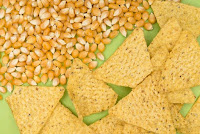National Children's Dental Health Month
Month of February - What's New and Events
National Bun Day 21st
Play Tennis Day 23rd
National Tortilla Chip 24th
National Trading Card Day 24th
Chocolate Covered Nuts Day 25th
Tell –a- Fairy Tale Day 26th
Purim 26th
No Brainer Day 27th
International Polar Bear Day 27th
International Tongue Twister Contest Day 27th
Tooth Fairy Day 28th
National Science Day 28th
National Science Day is a national holiday in India, which occurs on
the 28th of February each year.
To commemorate the discovery of the Raman
Effect. On this day, Sir CV Raman had announced the discovery of the Raman
Effect for which he was awarded the Nobel Prize in 1930.
National
Children's Dental Health Month 
Go Red in February
American Heart Month is the first Friday in February,
this
annual groundswell unites millions of people for a common goal: the eradication
of heart disease and stroke.
Celebration
of Chocolate Month
Humpback
Whale Awareness Month
Jewish
Disabilities Awareness, Acceptance, & Inclusion Month
Low Vision Awareness Month
National Pet
Dental Health Month
Plant the
Seeds of Greatness Month
Return
Shopping Carts to the Supermarket Month
Lent
Observed for 46 days starting 46 days before Easter
International Year of Fruits and Vegetables -2021
International Year of Peace and Trust - 2021
2021
February
is
Children’s Dental Health Month
Parents and Guardians:
Infants and Children- caring for your child’s teeth
to reduce the risk of oral infection…
In
the US and Canada Dentist and Dental Hygienists –
suggest these simple tips on caring for your child’s teeth to reduce the risk
of oral infection and Early Childhood Caries/cavities [ECC].
Our motto: It
contributes to- “Healthy Teeth – Healthy You!”
With
the arrival of the new teeth coming in children’s diet changes to eating more
like an adult, and bacteria continue to produce acids and toxins that are
harmful to hard and soft tissues in the mouth.
• Keep
your own teeth and gums as healthy as possible to minimize
transmission of strep bacteria.
• Develop
a routine for cleaning your baby’s mouth. Wipe their mouth and gums
using a clean, wet cloth or piece of gauze after each feeding.
• Gently
clean newly erupted teeth with gauze or a washcloth, or with a small soft
toothbrush (no toothpaste) specially designed for baby teeth.
• Keep
non-nutritious, sugary fruit punches and other drinks out of baby
bottles.
• If
you do use a bottle or sip cup at naptime during the day or at bedtime, avoid
juices, milk or formula, as all of these contain some amount of sugar. Use
plain water instead.
• Reduce
the frequency of nighttime feedings. Frequent feeding at night, when
saliva flow is at its lowest, increases the risk of ECC. The pooling of any
liquid (except water) around teeth at night also increases the risk.
• If
your baby uses a soother, check its packaging and shape to ensure it has an
orthodontic design, which will help prevent teeth from moving. The best
ones are nipple-shaped, keep baby’s lips closed and encourage natural breathing
through the nose.
• Never
dip soothers in anything sweet; honey is one of the worst offenders.
• If
your baby is on liquid medication (usually sweetened for taste), rinse and
brush their mouth with clear water immediately after the medication is
given.
• Check
for early warning signs of ECC by lifting up baby’s lips. White,
chalky teeth signal a mild case; brown or black-stained teeth and erosion
indicate a more serious case. Contact your dental hygienist immediately.
Note: Early Childhood Caries (ECC),
formerly known as nursing bottle caries, baby bottle tooth decay,…
• Gradually
introduce foods such as fresh fruits and vegetables to the diet. These
foods, which require hard or long chewing, cause saliva to flow, which removes
the acid and returns cavity-protecting calcium to the teeth.
Resource:
Ada.org
Children Dental Health Month - ada /en/public-programs/national-childrens-dental-health-month
Find more information at www.cdho.org


















.png)
Comments
Post a Comment